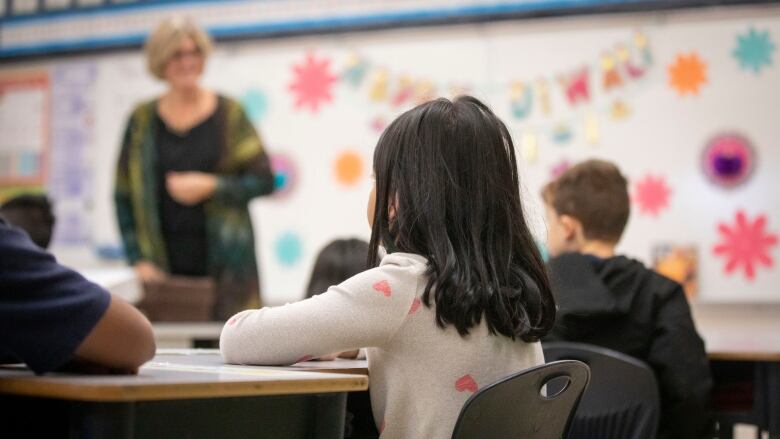Anti-racism action plan launches for B.C. K-12 students
Ministry of Education says majority of students have witnessed racism at school

The B.C. government has launched an anti-racism action plan for K-12 students it says will improve the school experience for racialized students, staff and families.
The Ministry of Education and Child Care announced the plan in a statement Tuesday. According to the ministry, the plan will empower students and staff to identify biases and address acts of racism using new incident response guidelines.
It also includes new training for staff that the ministry says will "help them better understand their role in fostering anti-racist school environments."
B.C.Minister of Education and Child CareRachna Singhsaid the plan was developed through roundtable discussions with various stakeholders.
"In the past twoyears, we have seen the rise in hate, racism and discrimination and our schools are also not immune to it," said Singh, speaking Tuesday on The Early Edition.
According to the B.C. Adolescent Health Survey that is given every five years to students in grades 7 to 12, 58 per cent of students surveyed in 2021 said they have seen other students insulted, bullied or excluded based on their race or ethnicity.
Singh says the plan will better equip educators with resources and tools to tackle these situations. She also noted the plan is a living document that will continue to be revisited and revised.
"This is not the end of the journey. It is the beginning of the journey now," she said.
#BC's K-12 Anti-Racism Action Plan requires all public and private schools to have codes of conduct.@RachnaSinghNDP says the 5-year plan will constantly be adapted to incorporate feedback from educators and those with "lived experiences of racism". pic.twitter.com/csesqVYgeT
—@MBernardoNewsConcrete action items in the plan include holding an annual event for Singh to engage directly with the BIPOC community and hear recommendations for the plan, which Singh says is a living document that will continue to be revisited and revised.
Another priority action is for the minister to host two youth dialogue series one with diverse, intersectional youth and one exclusively for Indigenous students.
Other priorities include having anti-racism reporting requirements in strategic plans, facilitating anti-racism workshops led by the B.C. Lions for grades 6 to 10 and increasing diversity in the education workforce.
There will also be resources developed to help educators identify and respond to racist incidents, as well as the creation of an online training course for ministry, school and school district staff.
All school districts and independent schools are also required to have codes of conduct and policies to address racism and discrimination.
"For generations, Indigenous, Black and people of colour have worked to fit into a system that wasn't necessarily built for them," said Mable Elmore, the parliamentary secretary for anti-racism initiatives, in a statement. "
This action plan is an important part of our work to decolonize our institutions."
With files from The Early Edition












_(720p).jpg)


 OFFICIAL HD MUSIC VIDEO.jpg)
.jpg)



























































































